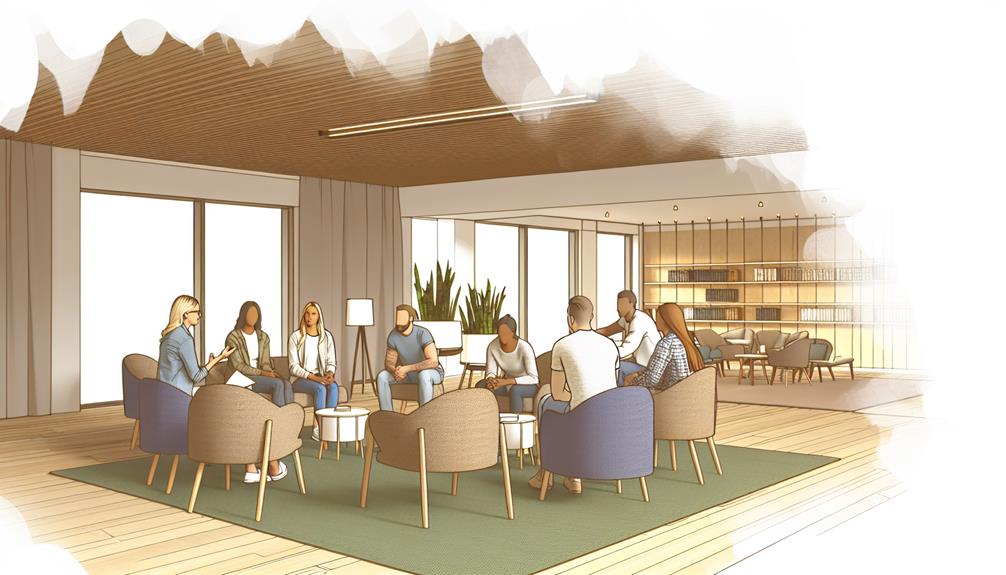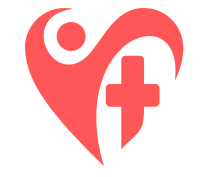Are you tired of feeling trapped in the cycle of addiction? Looking for a way to break free and reclaim your life? Drug rehabilitation facilities offer a glimmer of hope amidst the darkness, providing a safe and supportive environment for individuals seeking recovery. But what exactly happens within these facilities? How do they help you overcome your addiction? In this discussion, we will explore the various types of drug rehabilitation programs, the importance of individualized treatment plans, holistic approaches to addiction recovery, the therapeutic techniques and modalities used in rehab, as well as the aftercare and support services available for long-term sobriety. So, if you're ready to take the first step towards a brighter future, let's embark on this journey together.
Types of Drug Rehabilitation Programs

When seeking drug rehabilitation programs, it is important to understand the various types available to ensure you find the best fit for your needs. Two main types of drug rehabilitation programs are outpatient and inpatient programs.
Outpatient programs allow you to receive treatment while still living at home. This type of program is ideal if you have responsibilities that cannot be put on hold, such as work or childcare. Outpatient programs provide flexibility and allow you to attend counseling and therapy sessions during the day, while still maintaining your daily routine. It is important to note that outpatient programs require a strong support system and commitment to attending sessions regularly.
On the other hand, inpatient programs require you to reside at the facility for the duration of your treatment. These programs provide 24/7 care and support in a structured and controlled environment. Inpatient programs offer intensive therapy and counseling, as well as access to medical professionals. This type of program is recommended if you require a higher level of care or if you have a history of relapse.
When choosing a drug rehabilitation program, it is crucial to consider evidence-based treatments. These treatments are backed by scientific research and have been proven effective in helping individuals overcome addiction. Evidence-based treatments may include cognitive-behavioral therapy, medication-assisted treatment, and contingency management.
Importance of Individualized Treatment Plans
To ensure the most effective treatment for your addiction, it is crucial to develop an individualized treatment plan that addresses your specific needs and circumstances. Going through a drug rehabilitation program is a pivotal step towards recovery, and having a personalized care plan can greatly increase your chances of success.
One of the benefits of personalized care is that it takes into account your unique situation. Addiction affects individuals differently, and what may work for one person may not work for another. By tailoring your treatment plan to your specific needs, you are more likely to receive the support and guidance that will be most effective for you.
Another important aspect of individualized treatment plans is the role of family involvement. Addiction affects not only the individual but also their loved ones. Including family members in the treatment process can provide a strong support system that can help you navigate the challenges of recovery. Family therapy sessions and education about addiction can help your loved ones understand your struggles and provide the necessary support to aid your recovery.
Holistic Approaches to Addiction Recovery

Holistic approaches offer a comprehensive and integrated approach to addiction recovery, addressing not only the physical aspects of addiction but also the emotional, mental, and spiritual well-being of individuals. When it comes to addiction recovery, it is important to recognize that healing involves more than just treating the physical symptoms. It requires a holistic approach that takes into account the mind-body connection and incorporates alternative therapies to support the recovery process.
Alternative therapies, such as yoga, meditation, and acupuncture, can play a crucial role in addiction recovery. These practices focus on restoring balance to the mind, body, and spirit, helping individuals reconnect with themselves on a deeper level. Yoga, for example, combines physical postures, breathing exercises, and meditation to promote relaxation and reduce stress. This mind-body connection can help individuals manage cravings and develop healthier coping mechanisms.
Furthermore, holistic approaches emphasize the importance of addressing the underlying emotional and mental health issues that may contribute to addiction. Therapy sessions, both individual and group, provide a safe space for individuals to explore and heal from past traumas or unresolved issues.
Therapeutic Techniques and Modalities Used in Rehab
One of the key components of drug rehabilitation facilities is the utilization of various therapeutic techniques and modalities to support individuals on their journey to recovery. These techniques and modalities are designed to address not only the physical aspects of addiction but also the psychological and emotional factors that contribute to substance abuse. Here are four commonly used therapeutic techniques and modalities in rehab:
- Cognitive Behavioral Therapy (CBT): This approach helps individuals identify and change negative thought patterns and behaviors that contribute to their addiction. By addressing these underlying issues, individuals can develop healthier coping mechanisms and make positive changes in their lives.
- Mindfulness Meditation: Mindfulness meditation teaches individuals to focus their attention on the present moment, without judgment. This practice can help individuals become more aware of their thoughts, feelings, and physical sensations, allowing them to better manage cravings and triggers associated with drug use.
- Group Therapy: Group therapy provides a supportive and non-judgmental environment where individuals can connect with others who are facing similar challenges. Through sharing experiences and receiving feedback from peers, individuals can gain valuable insights and support in their recovery journey.
- Individual Counseling: Individual counseling allows individuals to work one-on-one with a trained therapist to explore their unique challenges and develop personalized strategies for overcoming addiction. This therapeutic modality provides a safe space for individuals to express their thoughts and emotions, and receive guidance and support from a professional.
Aftercare and Support Services for Long-Term Sobriety

For individuals seeking long-term sobriety, access to aftercare and support services is crucial in maintaining their recovery journey. After completing a drug rehabilitation program, transitioning back into everyday life can be challenging. This is where aftercare and support services come in, providing ongoing guidance and assistance to help you stay on the path to sobriety.
One of the most valuable components of aftercare is support groups. These groups offer a safe and understanding environment where you can connect with others who have similar experiences and struggles. Sharing your journey and listening to others' stories can provide a sense of belonging and validation. Support groups also offer practical advice and coping strategies for dealing with cravings, triggers, and other challenges that may arise during recovery.
Another essential aspect of aftercare is relapse prevention. Relapse is a common concern for individuals in recovery, but with the right tools and support, it can be minimized. Aftercare programs often provide ongoing education on relapse prevention techniques, helping you identify potential triggers and develop effective coping skills. They might also offer individual counseling or therapy sessions to address any underlying issues that could contribute to relapse.
Frequently Asked Questions
Are Drug Rehabilitation Facilities Covered by Insurance?
Yes, drug rehabilitation facilities are often covered by insurance. It's important to remember that insurance coverage varies, so it's best to check with your provider. These facilities can be effective in helping individuals overcome addiction.
What Is the Average Duration of a Drug Rehabilitation Program?
The average duration of a drug rehabilitation program varies depending on the individual's needs and progress. It typically ranges from 30 to 90 days. Success rates are influenced by various factors, such as the types of therapy utilized and the individual's commitment to recovery.
Can Family Members Visit Their Loved Ones During Their Stay in a Drug Rehabilitation Facility?
Yes, family members can visit their loved ones during their stay in a drug rehabilitation facility. Visitation policies vary, but most facilities understand the importance of emotional support from loved ones during the recovery process.
Are There Any Age Restrictions for Admission Into a Drug Rehabilitation Program?
There are usually age restrictions for admission into a drug rehabilitation program, as different facilities may have specific requirements. However, there are treatment options available for individuals of all ages to help them overcome addiction and start their journey to recovery.
How Do Drug Rehabilitation Facilities Ensure the Privacy and Confidentiality of Their Patients?
Drug rehabilitation facilities prioritize patient confidentiality and privacy measures. They implement strict protocols to protect your personal information and ensure that your journey towards recovery remains private and secure.



